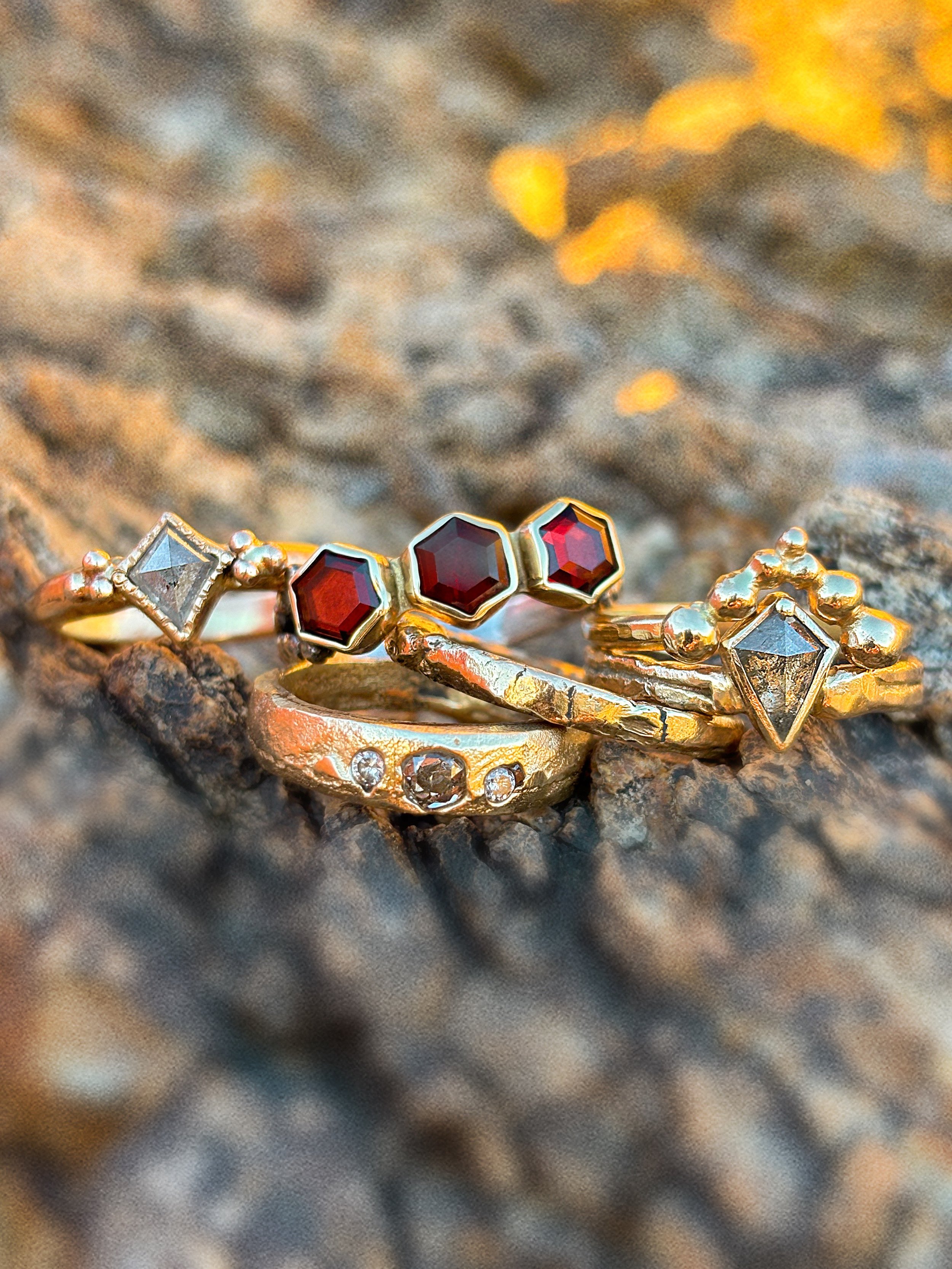
My story
Zanny is a multi-disciplinary artist based in Austin, Texas. Drawing inspiration from her Mexican, Kickapoo, and Irish heritage. Her process is inspired by old-world technique and honors the voices of the past. While preserving the historical elements of handweaving and goldsmithing, her work fuses a modern aesthetic with ancestral craft, crossing the boundaries of art, culture, and fashion.
Zanny was born in Austin, Texas and spent her childhood in the country, riding horses and living on a farm about two hours from the city. Early in life, she became curious about Native crafts such as braiding and beading; often practicing on horse manes and tails. She learned bead weaving at a young age; making gifts for family and friends. Eventually teaching herself to weave textiles and work in precious metals. Her art is an exploration of her ancestry and the knowledge of her forbears, through a contemporary approach to ancient craft.
Gem Legacy
Zanny’s passion for jewelry and gems were instilled at a young age by her Great Grandfather, “Paw Paw Murphy”. He and his brother, her Great Great Uncle Joe, were some of the “old timers” who traded gems, minerals, and fossils in the early days of the Tucson Gem show. When she visited him as a child, she recalls experiencing the wonders of a yard full of crystals, and always left with a treasure or two. He taught her all about gems, and let her borrow his Mineralogy poster for first grade “show and tell”. The poster hangs in her metalsmith workshop, along with numerous awards, trophies, and a multitude of gems and minerals he passed down. She is proud to carry on the gem legacy of her family through using some of the stones in her current jewelry designs, and working with lapidary artists to bring to life the vast amount of rough gems from his collection.
Philosophy
Sustainability and ethical approach to craft are the heart of Zanny’s practice and life. She exclusively uses natural fibers and recycled metals in her pieces. Sourcing wool from local sheep farms, Indigenous shepherds, and Fair Trade plant fibers from across the globe. She finds it necessary to counteract the “fast fashion” approach to textiles and adornment, by practicing a slow and mindful approach to these ancient skills.




